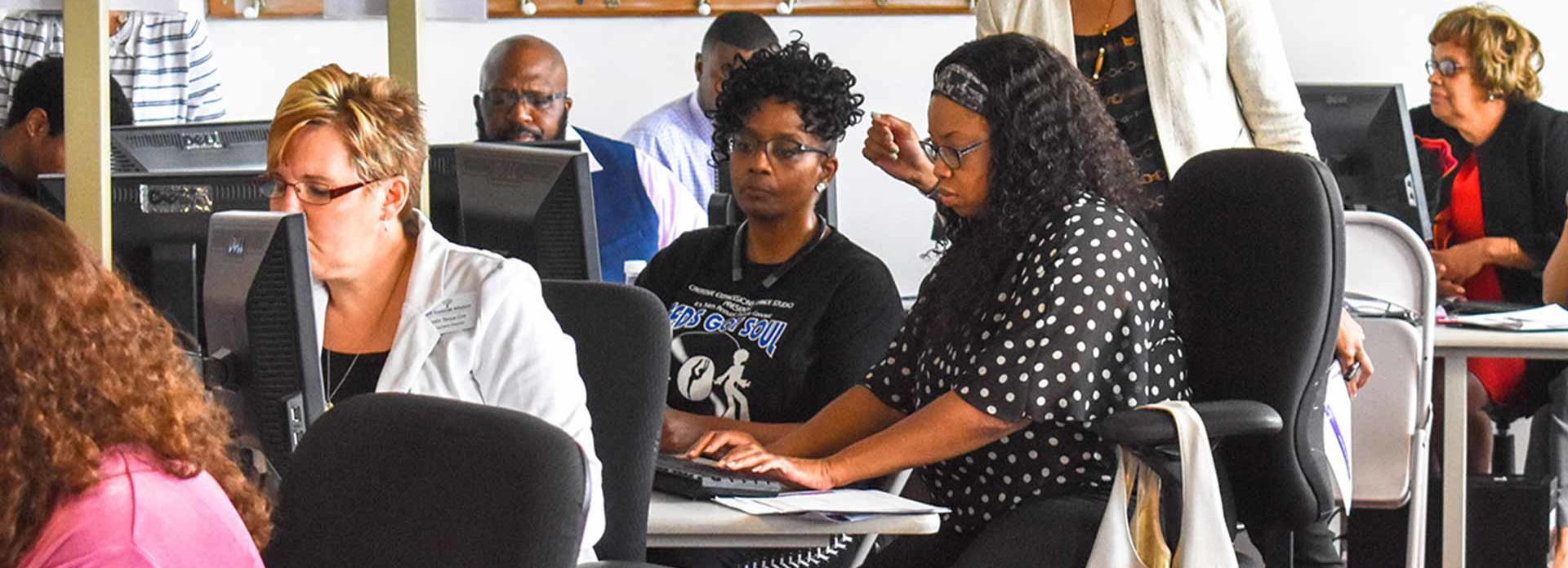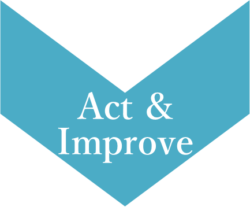Our Approach
The Ruth Mott Foundation is committed to being a learning organization – learning from our grantee partners, our community, our data, and our own work – as we strive to make a measurable difference in north Flint.

Why Evaluation?
Evaluation is a process organizations use to measure progress and drive decision-making. Organizations use evaluation not only to report to funders, but also as a tool to help tell their story, learn and improve, and describe their impact in the community. The Ruth Mott Foundation is committed to helping organizations track outcomes and evaluate progress.
The cycle of evaluation and learning is to plan, collect, analyze & report, and act & improve.
Step 1: Plan
- What problem or challenge will you address?
- What does success look like? Include both outputs and outcomes.
- Develop logic model and evaluation plan.
Step 2: Collect
- What data do you currently track? What needs to be developed?
- Schedule time to train staff and volunteers.
- Consent needed from parents and/or participants.
Step 3: Analyze & Report
- Make time to review data BEFORE reporting deadlines.
- Failures are important.
- Include ALL evaluation findings.
Step 4: Act & Improve
- Apply what your organization has learned to adapt strategies, services, programs, and policies.
This cycle includes identifying desired outcomes at the beginning, structuring reporting and tracking processes to monitor results, and adapting programs as necessary. The Ruth Mott Foundation works with all of our grantee partners, providing hands-on training as needed, on each of these steps in the cycle of evaluation and learning.
Theories of Change & Program-Level Indicators
In 2015, the Ruth Mott Foundation asked north Flint residents what issues mattered most to them.
Four priorities stood out: Youth, Public Safety, Economic Opportunity, and Neighborhoods. Residents identified areas to focus on within each priority. These shaped what kinds of grants we fund.
As we seek to make positive change in north Flint alongside our community partners, we developed theories of change and program-level indicators. The theories of change help track community-level changes in north Flint related to residents’ priorities. The program-level indicators help track whether the expected changes happen within a program or organization during a designated timeframe. Of course, forces beyond the Ruth Mott Foundation also shape what happens in north Flint, and we will take that into account as well.
Each priority identified by residents has its own theory of change and set of program-level indicators. They may be revised as we learn more about what works and what does not, and we will edit these documents accordingly.
What is a Logic Model?
Visit the Ruth Mott Foundation’s YouTube page for more videos on Learning & Evaluation.
Grantees who have questions about their Learning & Evaluation plans should contact their Program Officer and Tanya Gregory, Learning Officer.





